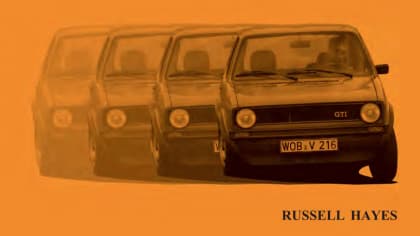THE BEST WAY TO GET OUT OF A SPEEDING TICKET IS...
This article is from our archives and has not been updated and integrated with our "new" site yet... Even so, it's still awesome - so keep reading!
Published on Tue, May 17, 2011
By: The LACar Editorial Staff

GUEST COLUMN
On the list of life’s certainties, speeding tickets are not too far behind death and taxes. But while most of us get them, some people manage to charm their way out of a fine. It is the precise nature this charm that interested psychologists Martin Day and Michael Ross at the University of Waterloo, in Ontario, Canada. Day and Ross collected hundreds of stories about drivers being pulled over, and in the June issue of Law and Human Behavior they report that, far and away, one charm works best when it comes to avoiding a big speeding ticket: apologizing.
To reach this conclusion, Day and Ross asked more than 500 Canadians to recall their most recent speeding violation. The survey participants detailed their speed and fine, as well as the interaction they had with the police officer who stopped them. Generally speaking these interactions fell into the following categories: apology (”I’m sorry”), excuse (”I didn’t realize I was speeding”), justification (”My sister is giving birth”), denial (”I wasn’t speeding”), or silence.
On average, the survey participants had been going 18 miles per hour over the speed limit, leading to a ticket of roughly $130 (Canadian dollars). When Day and Ross analyzed the specifics of these episodes, they found that people who apologized to the police officer received, on average, a $33 reduction to their fine.
This decrease came with some qualifications; saying sorry got you nothing if you were driving only 10 m.p.h. over the limit, but at 25 m.p.h. the fine dropped greatly. (By contrast, those who brought out excuses when caught for going just 10 m.p.h. over actually saw their fine increase by about $27.) Still, in the end, speeders who offered an apology had a 64 percent likelihood of receiving a fine (as opposed to a warning) at 18 m.p.h. over the limit, while 88 percent who showed no remorse got a ticket.
Insert stereotypical “Canadian police officers are probably nicer” comment if you must, but when Day and Ross studied American drivers they discovered the charm of apology held true. In their sample of 512 U.S. drivers, representing 45 states, the researchers found that speeders averaged 14 m.p.h. over the limit, leading to a $128 ticket. Once again, as this chart demonstrates, apologizing reduced the fine significantly:

As with their Canadian counterparts, U.S. drivers gained little from remorse at low speeds but had their fines reduced significantly at higher ones. And while American speeders who offered an apology had just a 68 percent likelihood of receiving a fine at the average speed, 85 percent who showed no remorse got a ticket. All told, the findings in both countries were similar enough for Day and Ross to draw some general conclusions about interacting with a police officer who pulls you over for speeding: Apologies may not always help, but they do not tend to hurt. … Although the reduction in ticket costs was most apparent for more severe offences, apologies for less severe offences had no obvious drawbacks. Pride, of course, notwithstanding. Thanks to Michael Ross for forwarding a copy of the paper to The Infrastructurist. Eric Jaffe The Infrastructurist




